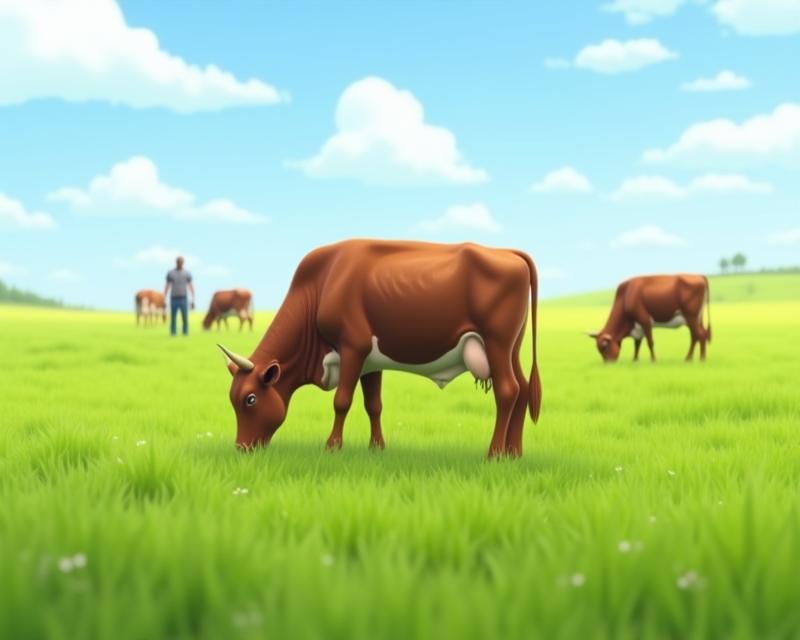Boosting Protein in Forages: A Farmer's Guide
Publish in Sustainable Farming el 23/07/2025 16:40
Boosting Protein in Forages: A Farmer's Guide
Forage is the cornerstone of a healthy livestock operation. Whether you're raising cattle, sheep, goats, or poultry, the quality of your pastures and stored feed directly impacts animal health, growth, and productivity. One of the most critical nutritional components is protein. Ensuring adequate protein levels in forages can significantly improve your livestock's well-being and ultimately boost your farm's profitability. Let's explore practical strategies to enhance the protein content of your pastures and stored feeds.

Understanding Protein Needs
Livestock require protein for growth, muscle development, milk production, and overall health. Different species have varying protein requirements based on their age, size, and physiological state (e.g., pregnancy, lactation). Understanding these needs is the first step. A general rule of thumb is that young, growing animals need higher protein levels than mature animals. Insufficient protein can lead to stunted growth, reduced milk yield, and weakened immune systems.
Fertilization Strategies for Protein Enhancement
Soil fertility plays a vital role in forage protein production. Nitrogen, phosphorus, and potassium are essential nutrients for plant growth, and nitrogen is particularly crucial for protein synthesis. Here's how fertilization can help:
- Nitrogen Fertilizers: Nitrogen is the key nutrient for leafy growth and protein development. Apply nitrogen fertilizers based on soil test results and the specific needs of your forage species. Consider slow-release nitrogen sources to provide a sustained supply.
- Phosphorus Fertilizers: Phosphorus supports root development, which allows plants to access more nutrients from the soil. Adequate phosphorus levels contribute to overall plant health and protein production.
- Potassium Fertilizers: Potassium enhances plant vigor and disease resistance. It also plays a role in protein synthesis and water regulation within the plant.
Remember to conduct regular soil tests to determine your soil's nutrient levels and tailor your fertilization plan accordingly. Over-fertilizing can be detrimental to the environment and can also negatively impact forage quality.
Species Selection: Choosing Protein-Rich Forages
The type of forage you grow significantly impacts its protein content. Some forage species naturally have higher protein levels than others. Consider incorporating these protein-rich options into your pasture mix:
- Legumes: Legumes like clover, alfalfa, and vetch are excellent sources of protein. They have a symbiotic relationship with nitrogen-fixing bacteria in their roots, which naturally enriches the soil with nitrogen.
- Birdsfoot Trefoil: This drought-tolerant legume is a good option for drier regions and provides a decent protein boost.
- Consider Mixes: A diverse pasture mix that includes grasses and legumes can provide a balanced nutritional profile for your livestock.
Research the specific protein content of different forage species and choose those that best meet the nutritional needs of your livestock and your farm's climate. Proper management practices, such as rotational grazing, can also enhance forage quality and protein availability.
By implementing these strategies, you can significantly improve the protein content of your forages, leading to healthier livestock and a more productive farm. Don't hesitate to consult with your local agricultural extension office for personalized recommendations based on your specific location and livestock needs.





